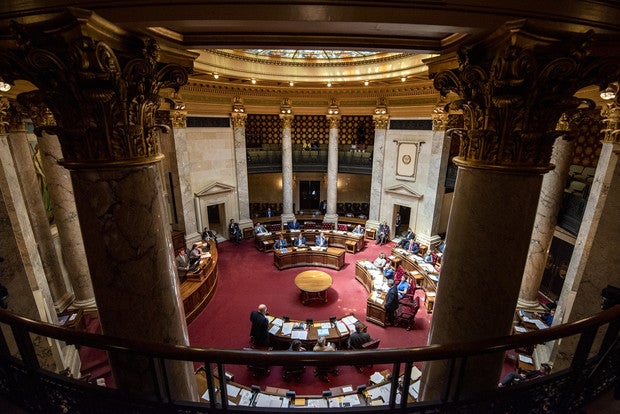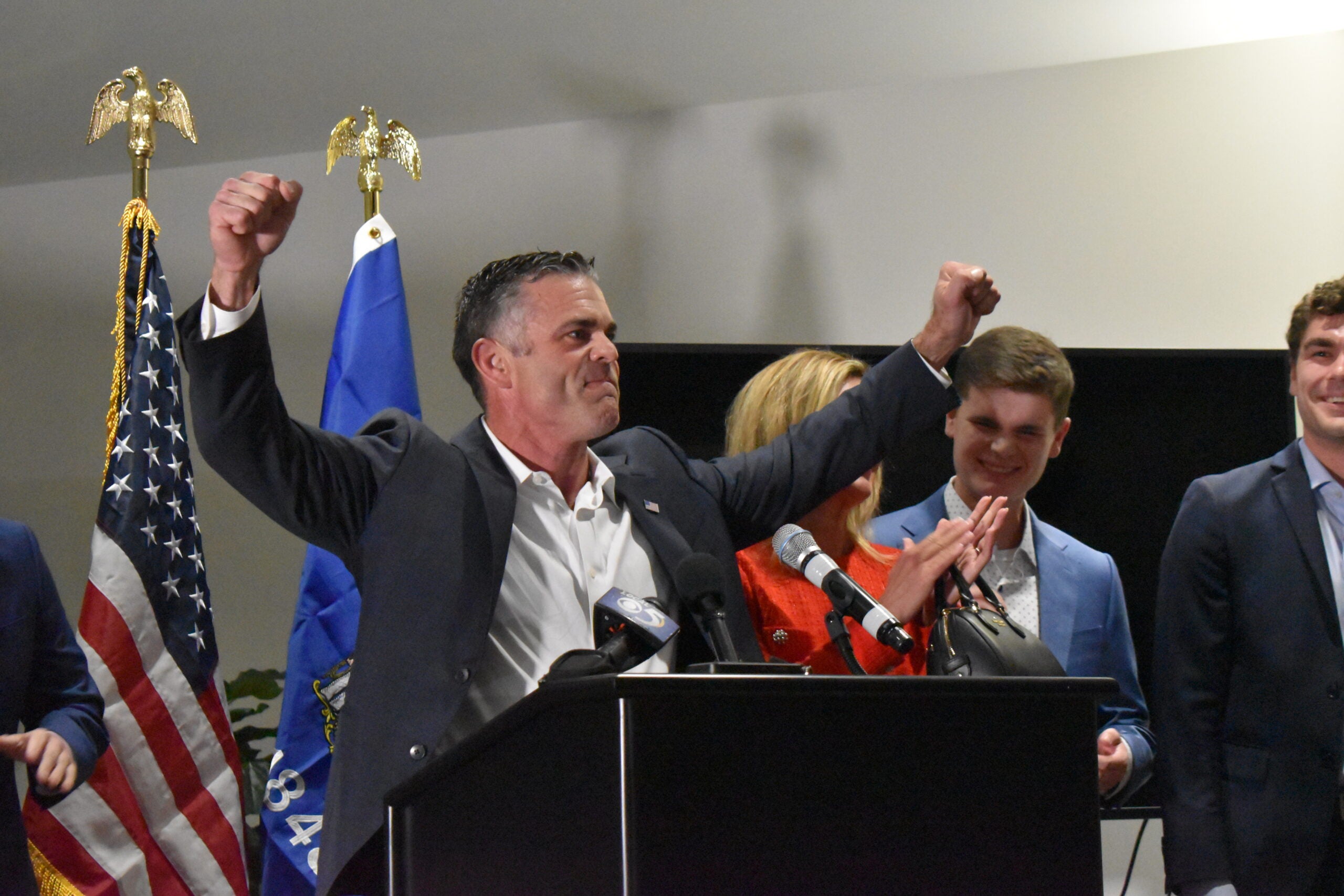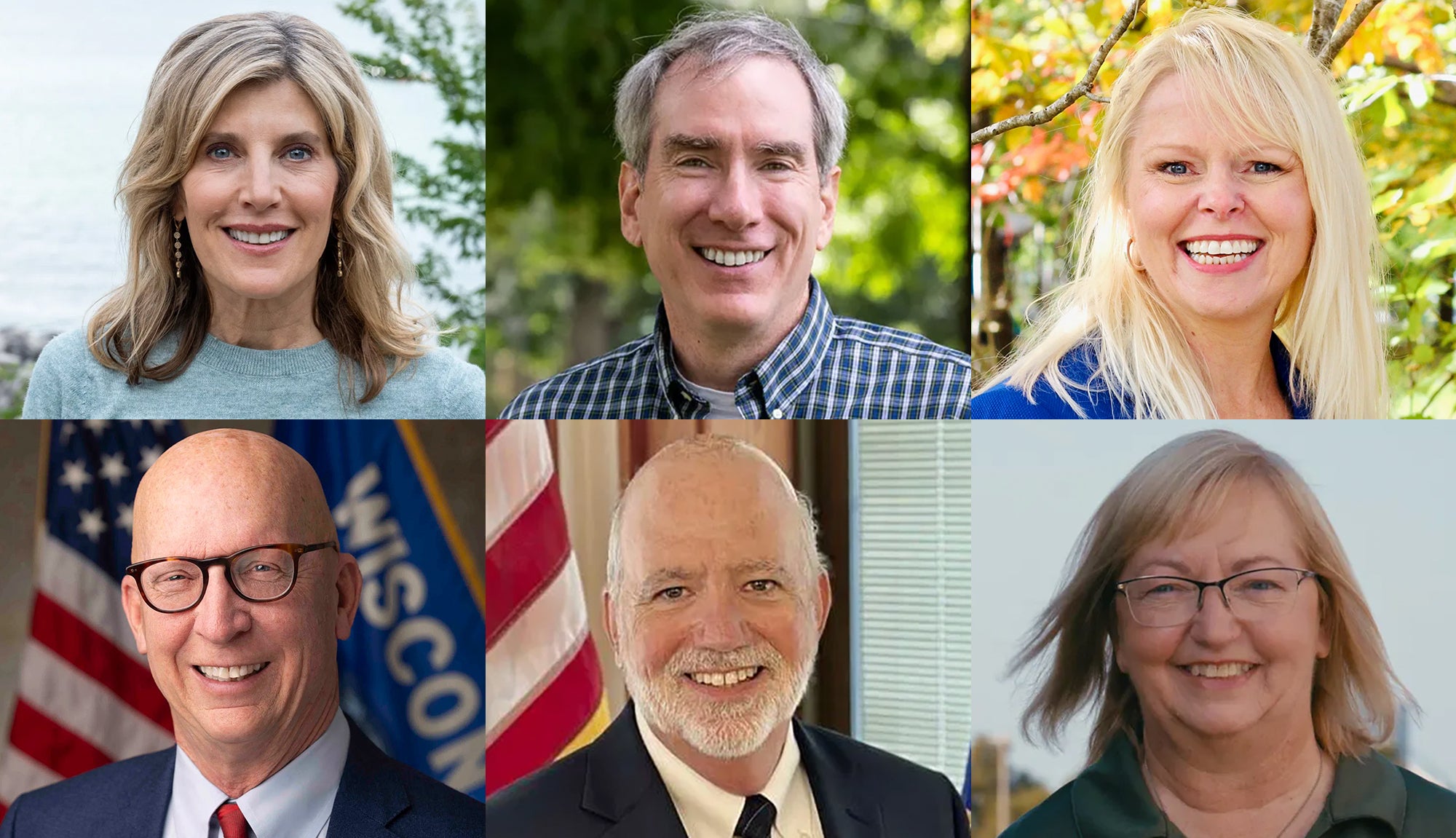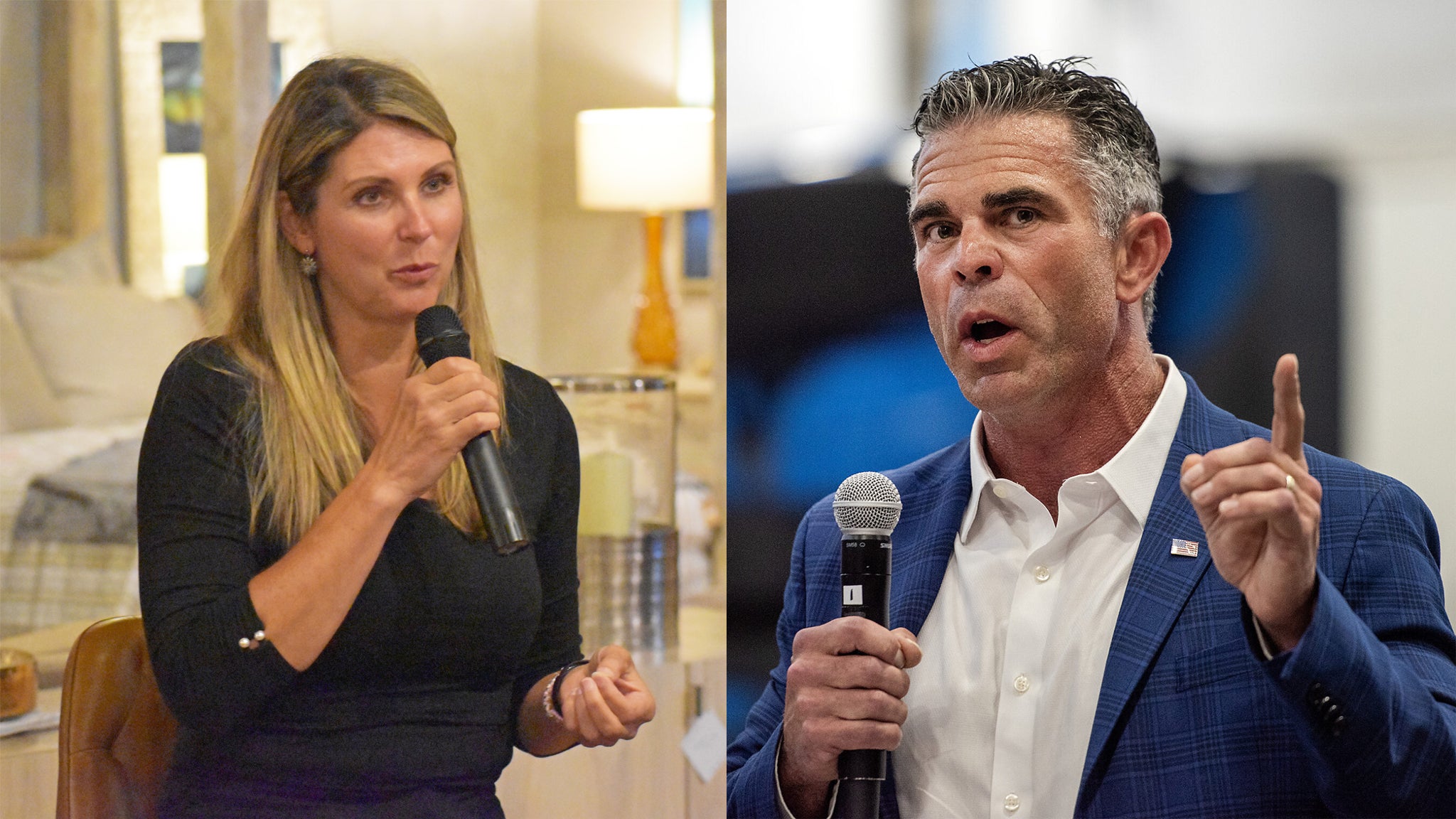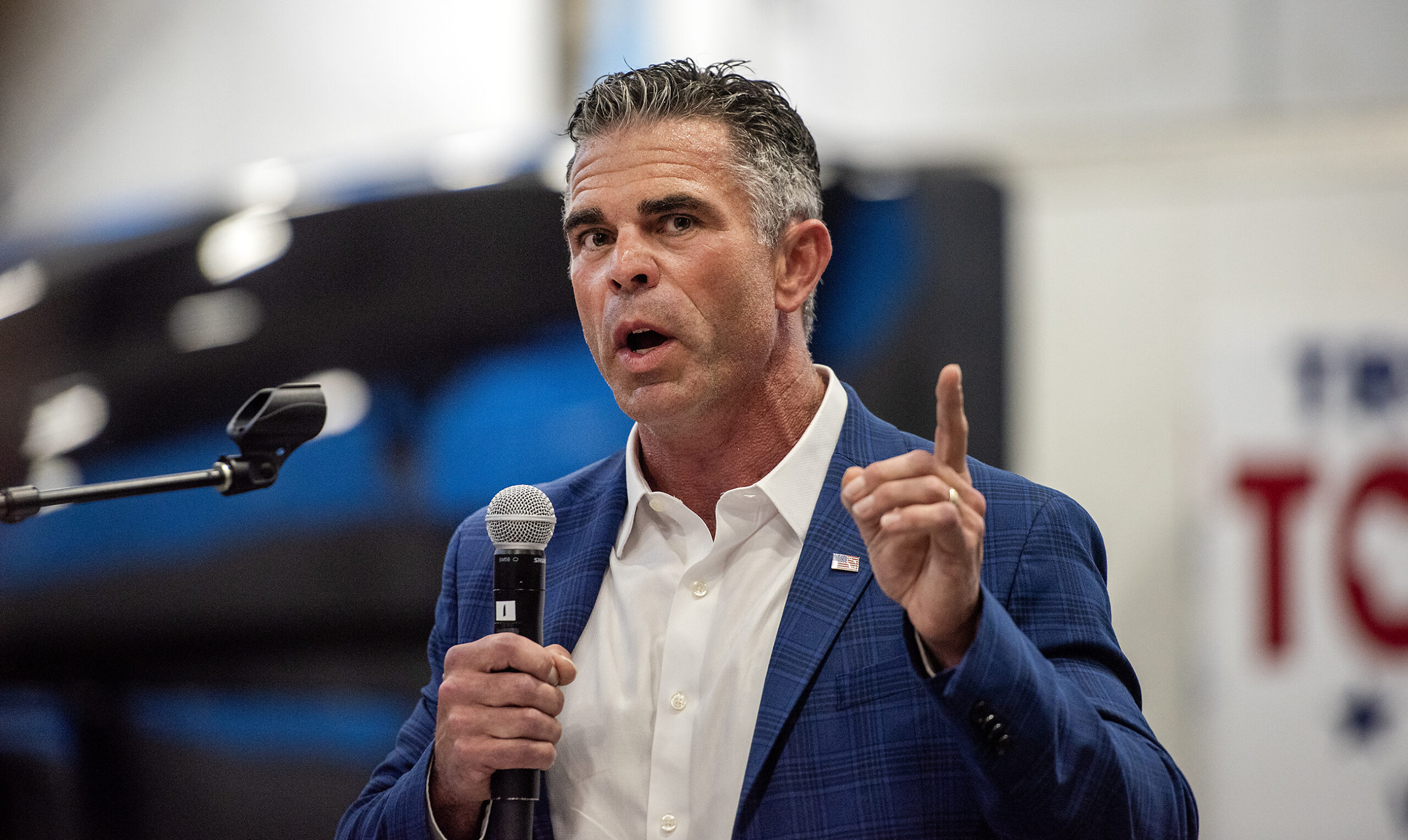Under the shadow of the Wisconsin Supreme Court race is a special election that will determine whether Republicans secure a two-thirds majority in one house of the state Legislature.
The 8th District seat in southeastern Wisconsin was held for three decades by Republican state Sen. Alberta Darling. With Darling’s retirement, the seat is up for grabs. While the district has long been dominated by Republicans and still favors the GOP, Democrats hope growing support in Milwaukee’s suburbs gives their candidate an opportunity to flip the seat.
Republican state Rep. Dan Knodl of Germantown won his party’s primary in February and goes up against Democrat Jodi Habush Sinykin on April 4.
Stay informed on the latest news
Sign up for WPR’s email newsletter.
Charles Franklin, director of the Marquette University Law School poll, said while the district leans Republican by 1-to-4 points, it’s become more competitive in recent years.
“I think it’s clear that the Democratic candidate will need an unusually good turnout and vote margin in order to win that district. It can be done, but it’s a bit of a challenge,” he said.
The GOP has comfortably controlled both houses for over a decade, despite Democratic wins in statewide elections. After Republicans won big in 2010, they redrew legislative maps in 2011, described by many as some of the most politically gerrymandered in the country. Another round of redistricting happened in 2021, with little change, and the maps still heavily favor Republicans in the Legislature.
But GOP support has waned in recent years as Democrats made inroads in the suburbs.
Republican U.S. Sen. Ron Johnson won about 63 percent of the district vote in 2016, but that dropped to 54 percent in 2022, according to a Marquette Law School analysis provided to Wisconsin Public Radio.
In 2012 and 2014, former Republican Gov. Scott Walker won about 67 percent of the vote in the current boundaries of the 8th Senate District. In 2018, that fell to 60 percent as he lost to Democratic Gov. Tony Evers statewide.
In the November election, Donald Trump-endorsed gubernatorial candidate Tim Michels received about 52 percent of the vote in the district. But he lost to Evers, who secured a second term.
Franklin said the trends show an important shift: Where Democrats now attract voters who are younger, college-educated and lower-income, Republicans perform well with older, less educated and higher-income voters.
Barry Burden, director of the Elections Research Center at the University of Wisconsin-Madison, said the district is not yet a toss-up, but it’s now within the grasp of Democrats, a possibility that “would not have been the case five or 10 years ago.”
“It’s been zooming towards the Democrats very quickly in the last decade,” Burden said.
The district covers wide ground. Burden said it has just about everything — suburbs, urban areas, small to medium-sized cities north of Milwaukee, farm communities and even exurbs. It includes swaths of Waukesha, Ozaukee and Washington, otherwise known as the WOW counties.
Burden said people should be careful not to read too much into one race, but a Democrat winning a Republican-leaning district could have implications far beyond this year.
“It would be a warning shot to Republicans that there’s still a lot of energy on the Democratic side that puts the GOP in some jeopardy going into 2024,” Burden said.
Who are the candidates?
In interviews with WPR, Democrat Habush Sinykin slammed her opponent as extreme on abortion and anti-democracy while Republican Knodl focused on tax reform, inflation, crime and parental rights.
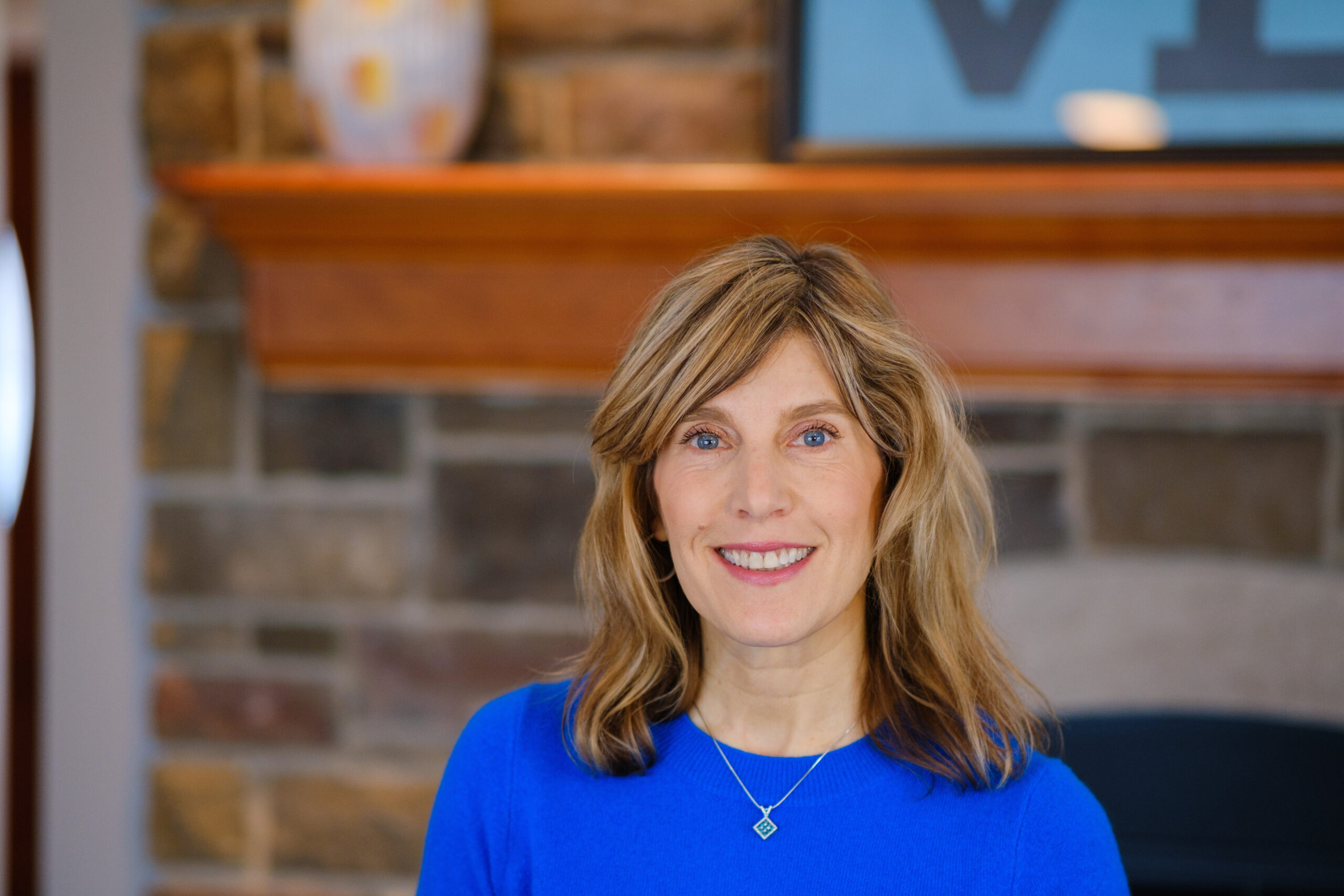
An attorney who has worked in private practice and with the Midwest Environmental Advocates, Habush Sinykin hasn’t served in elected office. But she said she’s worked with legislators in her past advocacy work, including on The Great Lakes-St. Lawrence River Basin Water Resources Compact. She and her husband have also owned and operated the textile manufacturing company Monterey Mills for nearly 30 years.
“The biggest issues facing both Senate District 8 and the state of Wisconsin are women’s right to choose and health care needs, relief for working families, and the safety of our local communities, which includes the funding of those vital services,” she said.
Habush Sinykin said she’s running because she wants to end what she calls divisive, extreme politics plaguing the state.
“What we have seen over recent years is a breakdown in that ability to work together. And I share what I am hearing from folks in my district, that this divisive politics of extreme candidates is really breaking down the political process in our state,” Habush Sinykin said.
Knodl used to own Reef Point Resort on Pike Lake in Hartford. He was elected to the state Assembly in 2008.
Knodl touted his legislative record and relationships built over the eight terms he’s served in office. He said he’s running to “continue the good work” he and Darling accomplished — authoring 20 bills together — and work across the aisle to move the state forward.
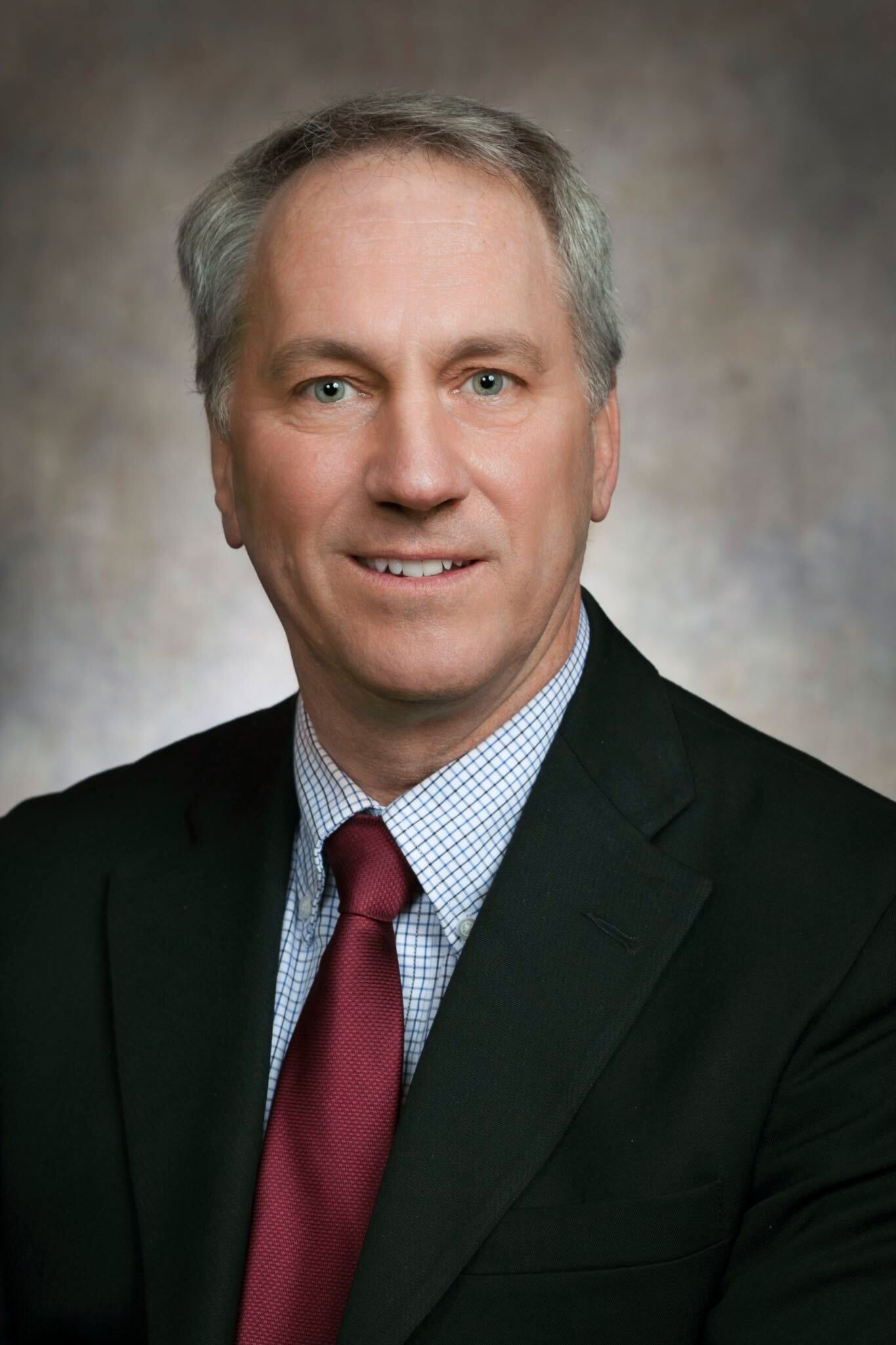
“They know me, and they’ve seen my work. I have a 14-year record. And it’s been positive,” he said.
Throughout his tenure, he said he’s most proud of the victim witness protection bill Evers signed into law. The legislation created additional penalties for intimidating a victim or witness of domestic abuse.
Knodl praised the elimination of a personal property tax in Evers’ latest budget proposal to reinvest in small businesses.
“We’re in very difficult inflationary times right now. So tax relief is important, where people have additional … hard-earned dollars in their pocket to pay for the items that they need to get by for day to day living,” he said.
On education, Knodl said he supports school choice and believes parents “should be fully informed of everything, or have that information at least available, of what is happening in the schools and the curriculum.”
Habush Sinykin cast Knodl as out of step with voters, saying he shouldn’t be considered a more moderate candidate than state Rep. Janel Brandjten, R-Menomonee Falls, the Donald Trump-endorsed candidate who lost in the primary.
“He has focused his efforts on undermining women’s health care options. He has focused his efforts on supporting policies that cut our local communities off from the vital funds they need to maintain the safety of our communities. And he has spent his time undermining our state’s electoral process and making folks distrust our system,” Habush Sinykin said.
Knodl pushed back, saying he’s focused on addressing shared revenue and has met with all of the finance directors of local communities.
He was among the 15 Republican state legislators to have signed a letter to former Vice President Mike Pence the day before the Jan. 6 insurrection seeking a 10-day delay to certify the election. He said he did so because of questions raised about voting procedures like unmanned drop boxes that were later outlawed by the state Supreme Court.
Knodl rejected claims that he sought to decertify the 2020 presidential election.
“There were abnormalities that happened in that election. But I don’t deny the outcome of the election,” he said.
Knodl said there’s more to be done on election integrity. Among his other priorities, Knodl said he hopes to reinvest money in small businesses and stem crime in the Milwaukee area.
Why is the race significant?
Evers has vetoed a historic number of GOP bills during his time in office. Should the GOP defend the open 8th District seat, Republicans would need to flip just two seats in the state Assembly to override that power.
But even with a two-thirds Senate majority, Republicans could vote to impeach and remove “civil officers,” or elected officials, a move Knodl has not ruled out.
“Impeachment to me is for those that are absolutely failing at their job,” he said. “The prosecutors, Milwaukee circuit court judges that aren’t imposing the correct sentences and putting their neighborhoods in danger by releasing dangerous criminals back out in the community — I think that’s impeachable.”
Knodl said he plans to work with Evers and is optimistic about the future of Wisconsin.
“Our first order of business in government should be the safety of our citizens. And so those are the areas that I would consider to remove people from office. The governor is not on that list,” he said.
For Habush Sinykin’s part, she decried the prospect of impeachment as an example of “hyperpolitical games.”
On the issues: abortion dominates
Burden of the Elections Research Center said turnout is likely to be well below half of eligible voters, which makes the race even more difficult to predict. He said the Republican primary offered a preview of potential GOP enthusiasm, but it’s hard to tell for Democrats since Habush Sinykin ran unopposed.
“There were some signs from that as to how energized Republicans were, but really no indication about whether Democrats are going to show up in the same way,” he said.
But this spring, with the state Supreme Court on the ballot, one issue still dominates — abortion.
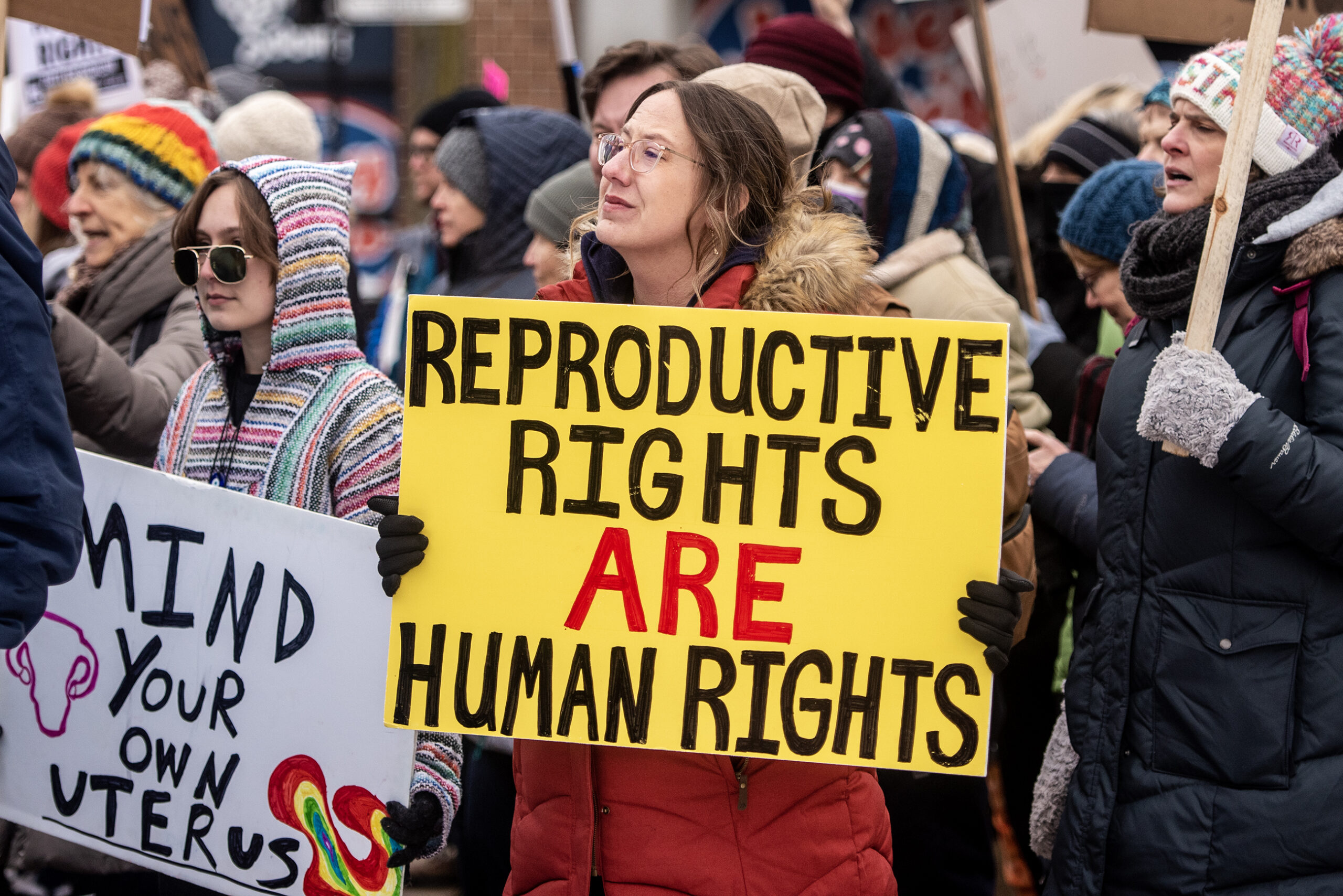
Habush Sinkykin said her priority, if elected, would be to address reproductive health care needs by working to implement alternatives to the pre-Civil War statute that criminalizes abortion in nearly all cases in Wisconsin.
She knows it will be difficult in a Republican-controlled Legislature.
“Of course, you can’t make someone who refuses to talk at all talk. But it’s going to be more difficult if I’m working with their constituents and folks who are invested in progress and critical areas of our state like health care, like our democracy, like our environment,” she said.
Before the U.S. Supreme Court overturned Roe v. Wade, bringing the state’s abortion ban back into effect, Wisconsin abortion law prohibited the procedure after 20 weeks of pregnancy. That bill was co-sponsored by Knodl in 2015.
In 2021, he voted for the “Born Alive” bill that would have penalized Wisconsin health care workers who failed to care for babies in the rare case they’re born alive after attempted abortion. Evers vetoed it.
Last week, Knodl was one of a handful of Republicans in the Assembly to introduce legislation that would add exceptions of rape and incest to the law for up to 12 weeks. It received swift bipartisan opposition.
Habush Sinykin blasted the bill and questioned its timing, calling it “a political ploy meant to help a politician with his Senate election.” She pointed to Knodl’s continued support for the state statute that criminalizes abortion unless the mother’s life is in danger.
In response, Knodl clapped back, saying he’s taking action in the interest of the constituents he represents. “The political ploy is using abortion as the only issue to run on,” he said.
“I think it’s unconscionable that you don’t recognize that there’s two lives there,” he added. “When my opponent and the Democrats talk about women’s rights, that’s very important. But I recognize there’s another life there.”
Knodl noted the law was created the year after Wisconsin became a state.
“I don’t think we’re going to take laws off the books regarding what murder is, or other things that were created in 1849,” he said. “That law protects the life of the mother, so that’s of utmost importance.”
Polling shows support for abortion in Wisconsin is strong. On average, about 60 percent of Wisconsinites say abortion should be legal in all or most cases. A poll in late January found 64 percent of voters oppose the reversal of Roe v. Wade.
“It’s not a foregone conclusion that the issue will help the Democrat,” Franklin of the Marquette University Law School said. “It’s pretty clear that the majority favors at least some abortion rights. But how does that play out in this race?”
Wisconsin Public Radio, © Copyright 2025, Board of Regents of the University of Wisconsin System and Wisconsin Educational Communications Board.
